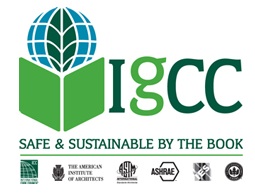
On March 28, the International Code Council released the 2012 International Green Construction Code (IgCC), aimed at helping state and local governments provide direction and oversight of green design and construction.
The ICC notes that the 2012 IgCC is written to offer flexibility to jurisdictions that adopt the code by establishing several levels of compliance, starting with the core provisions of the code, and then offering requirement options that can be customized to fit the needs of a local community.
A jurisdiction can also require higher performance through the use of “project elective” provisions based on the code.
In other words, the ICC adds, the IgCC is intended to act as an overlay to existing code, including the International Energy Conservation Code and the ICC-700 (National Green Building Standard). It also incorporates ASHRAE Standard 189.1 as an alternate path to compliance for new and existing buildings (though Standard 189.1 is not written for low-rise residential buildings).
Another tool in the code toolbox
The 2012 IgCC was shaped over three years by public hearings and input from specialists in code development and enforcement, and from experts in all disciplines in the building industry and environmental advocacy. The American Institute of Architects and ASTM International cosponsored the project with the support of ASHRAE (the American Society of Heating, Refrigerating and Air-conditioning Engineers), the U.S. Green Building Council, and the Illuminating Engineering Society.
“Coordinated with the ICC family of codes, the IgCC is designed for use in communities that are pursuing sustainable construction above and beyond the traditional level of requirements in our codes,” William D. Dupler, president of the ICC board of directors, said in a press release.
Roger Platt, USGBC’s senior vice president of global policy and law, added the IgCC will be key to informing building codes nationwide and encouraging policy makers to up the ante for building performance, construction practices, and materials use in their communities, whether the projects are striving for Leadership in Energy and Environmental Design certification or not.
“We need public policy that rewards this beyond-code leadership alongside codes that redefine what we should expect of our buildings,” Platt said. “The IgCC and Standard 189.1 are an important and intentional complement to LEED.”
Weekly Newsletter
Get building science and energy efficiency advice, plus special offers, in your inbox.














0 Comments
Log in or create an account to post a comment.
Sign up Log in